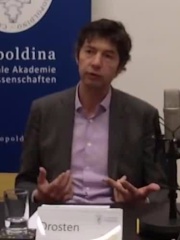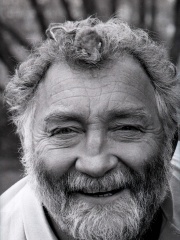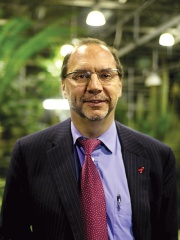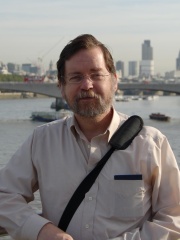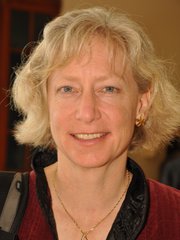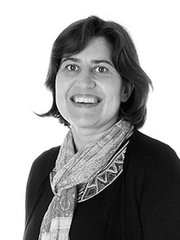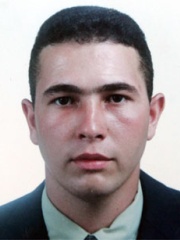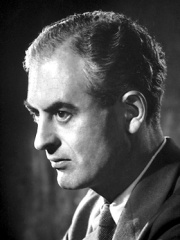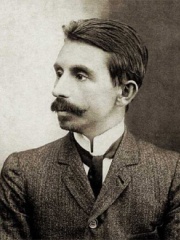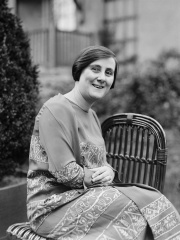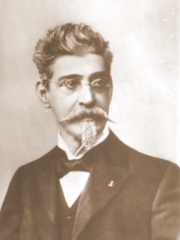BIOLOGIST
Suzana Herculano-Houzel
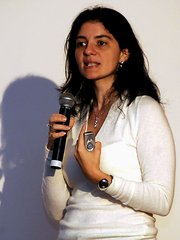
 Suzana Herculano-Houzel
Suzana Herculano-Houzel
Suzana Herculano-Houzel (born 1972) is a Brazilian neuroscientist. Her main field of work is comparative neuroanatomy; her findings include a method of counting neurons in human and other animals' brains and the relation between the cerebral cortex area and the thickness and number of cortical folds. Read more on Wikipedia
Her biography is available in 14 different languages on Wikipedia. Suzana Herculano-Houzel is the 1,093rd most popular biologist, the 1,459th most popular biography from Brazil and the 6th most popular Brazilian Biologist.
Suzana Herculano-Houzel is a Brazilian neuroscientist known for her research on the structure and function of the brain, particularly her work on the number of neurons in the human brain compared to other species. She is also recognized for developing a method to quantify brain cells, which has advanced the understanding of brain evolution and complexity.
Memorability Metrics
Page views of Suzana Herculano-Houzel by language
Among BIOLOGISTS
Among biologists, Suzana Herculano-Houzel ranks 1,093 out of 1,097. Before her are Christian Drosten, David Bellamy, Peter Piot, Magnus Manske, Lubna Tahtamouni, and PZ Myers. After her are Pardis Sabeti, Gretchen Daily, Riin Tamm, Maria Van Kerkhove, Feng Zhang, and Valerie Masson-Delmotte.
Most Popular Biologists in Wikipedia
Go to all RankingsChristian Drosten
1972 - Present
HPI: 45.62
Rank: 1,087
David Bellamy
1933 - 2019
HPI: 44.62
Rank: 1,088
Peter Piot
1949 - Present
HPI: 44.56
Rank: 1,089
Magnus Manske
1974 - Present
HPI: 44.50
Rank: 1,090
Lubna Tahtamouni
1976 - Present
HPI: 44.02
Rank: 1,091
PZ Myers
1957 - Present
HPI: 43.03
Rank: 1,092
Suzana Herculano-Houzel
HPI: 42.95
Rank: 1,093
Pardis Sabeti
1975 - Present
HPI: 42.36
Rank: 1,094
Gretchen Daily
1964 - Present
HPI: 41.01
Rank: 1,095
Riin Tamm
1981 - Present
HPI: 40.66
Rank: 1,096
Maria Van Kerkhove
1977 - Present
HPI: 40.45
Rank: 1,097
Feng Zhang
1981 - Present
HPI: 40.24
Rank: 1,098
Valerie Masson-Delmotte
1971 - Present
HPI: 40.23
Rank: 1,099
In Brazil
Among people born in Brazil, Suzana Herculano-Houzel ranks 1,459 out of 2,236. Before her are Dodô (1992), Felipe Mattioni (1988), Ricardo Santos (1987), Raphael Claus (1979), Killing of Jean Charles de Menezes (1978), and Heberty Fernandes de Andrade (1988). After her are Eduardo Marques (1976), Mariano (1986), Danni Suzuki (1977), Fofão (1970), Ataliba (1979), and Jaqueline Carvalho (1983).
Others born in Brazil
Go to all RankingsDodô
SOCCER PLAYER
1992 - Present
HPI: 43.02
Rank: 1,453
Felipe Mattioni
SOCCER PLAYER
1988 - Present
HPI: 43.01
Rank: 1,454
Ricardo Santos
SOCCER PLAYER
1987 - Present
HPI: 43.00
Rank: 1,455
Raphael Claus
REFEREE
1979 - Present
HPI: 43.00
Rank: 1,456
Killing of Jean Charles de Menezes
SOCIAL ACTIVIST
1978 - 2005
HPI: 42.99
Rank: 1,457
Heberty Fernandes de Andrade
SOCCER PLAYER
1988 - Present
HPI: 42.98
Rank: 1,458
Suzana Herculano-Houzel
BIOLOGIST
HPI: 42.95
Rank: 1,459
Eduardo Marques
SOCCER PLAYER
1976 - Present
HPI: 42.94
Rank: 1,460
Mariano
SOCCER PLAYER
1986 - Present
HPI: 42.94
Rank: 1,461
Danni Suzuki
ACTOR
1977 - Present
HPI: 42.94
Rank: 1,462
Fofão
VOLLEYBALL PLAYER
1970 - Present
HPI: 42.93
Rank: 1,463
Ataliba
SOCCER PLAYER
1979 - Present
HPI: 42.93
Rank: 1,464
Jaqueline Carvalho
VOLLEYBALL PLAYER
1983 - Present
HPI: 42.93
Rank: 1,465
Among BIOLOGISTS In Brazil
Among biologists born in Brazil, Suzana Herculano-Houzel ranks 6. Before her are Peter Medawar (1915), Euclides da Cunha (1866), Bertha Lutz (1894), João Barbosa Rodrigues (1842), and Warwick Estevam Kerr (1922).
Peter Medawar
1915 - 1987
HPI: 63.84
Rank: 1
Euclides da Cunha
1866 - 1909
HPI: 58.69
Rank: 2
Bertha Lutz
1894 - 1976
HPI: 57.10
Rank: 3
João Barbosa Rodrigues
1842 - 1909
HPI: 56.49
Rank: 4
Warwick Estevam Kerr
1922 - 2018
HPI: 56.17
Rank: 5
Suzana Herculano-Houzel
HPI: 42.95
Rank: 6
